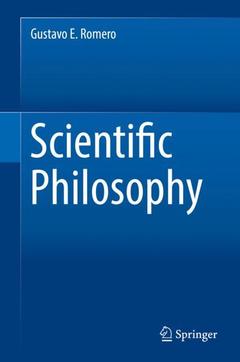CONTENTS
1 introduction 1
2 philosophical semantics 7
2.1 Introduction: formal languages 7
2.2 Denotation and designation 10
2.3 Reference 10
2.4 Representation 12
2.5 Intension and sense 13
2.6 Meaning 14
2.7 Vagueness 17
2.8 Theory of truth 18
2.8.1 A short overview of some theories of truth 19
2.8.2 Formal truth 23
2.8.3 Factual truth 23
2.8.4 Relevancy 24
2.8.5 Truth bearers 26
2.8.6 Analytic/Synthetic distinction of propositions 27
3 ontology 31
3.1 Things and composition 31
3.2 Properties and substance 35
3.3 Existence 39
3.4 Levels, systems, structure 41
3.5 Causality 42
3.6 Chance and probability 43
3.7 Space, time, and spacetime 44
3.8 Matter 45
3.9 Mind 45
3.10 Materialism 46
3.11 Information 46
3.12 Biological systems 47
3.13 Social systems 48
4 epistemology 51
4.1 Knowledge 51
4.2 Understanding 54
4.3 Explanation 54
4.4 Sufficient reason 56
4.5 Model 60
4.6 Theories 60
4.7 Science 63
4.8 The limits of science 64
4.9 Technology 66
4.10 Pseudoscience and pseudotechnology 67
4.11 Scientific Philosophy 68
5 ethics 73
5.1 Values 73
5.2 Axiology 75
5.3 Free will 76
5.4 The ontological status of goods, values, and morals 78
5.5 Ethics 78
5.6 Metaethics 80
5.7 Action 80
6 aesthetics 85
6.1 Aesthetic experience 85
6.2 Beauty 86
6.3 Art and artworks 87
6.4 The ontology of art 90
7 mathematical fictionalism 95
7.1 The nature of mathematics 96
7.2 Mathematical objects as conceptual artifacts 98
7.3 Why mathematics can be applied to reality? 100
8 philosophical problems of quantum mechanics 105
8.1 Introduction 105
8.2 Outline of QM 105
8.3 Axiomatization of QM 107
8.3.1 Tools 108
8.3.2 Formal background 111
8.3.3 Material background 111
8.3.4 Remarks 111
8.3.5 Generating basis 112
8.3.6 Definitions 112
8.3.7 Axiomatic basis 113
8.3.8 Axioms 113
8.3.9 Remarks 116
8.3.10 Definitions 116
8.3.11 Some theorems 116
8.3.12 Remarks 118
8.4 Philosophical issues 119
8.5 Extension to systems of many components 120
8.6 EPR and realism 121
8.7 Entanglement 123
9 quantum objects 129
9.1 Introduction 129
9.2 Identity and the quantum world 129
9.3 Ontic vagueness? 133
9.4 Realistic quantum ontology 135
10 ontological problems of spacetime 141
10.1 Introduction 141
10.2 The controversy 142
10.3 Against Presentism 144
10.4 When is ‘now’? 148
10.5 Defining the present 150
10.6 Some further objections against presentism 151
10.7 Event substantivalism and the emergence of things 153
10.8 Defending eternalism 157
10.9 Relationism before time 159
10.10An ontology cozy for science 161
10.11Closing remarks 162
a event ontology 173
a.1 Introduction 173
a.2 A theory of basic events and processes 174
a.3 Causation 180
a.4 Spacetime 180
a.5 Discrete spacetime 183
b boolean algebra 193
c probabilities 195
d suggested readings 197

